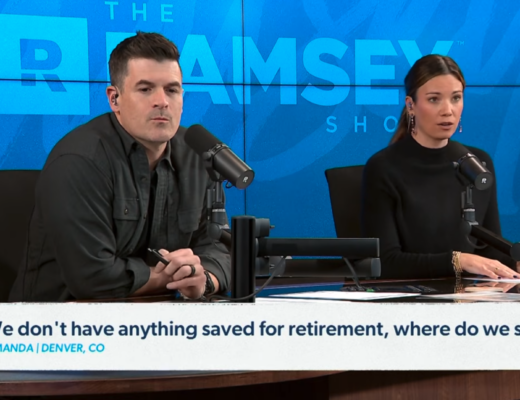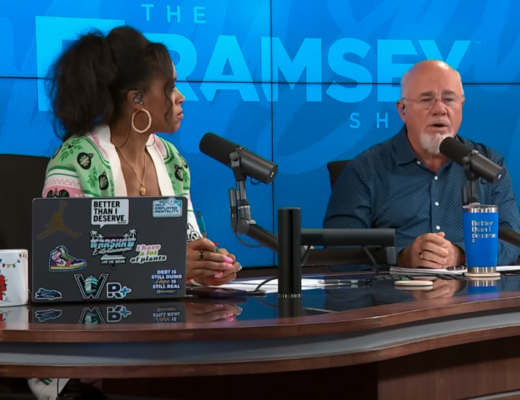A recent banking nightmare opened my eyes to the dangerous side of automated banking systems and reinforced why active money management is crucial. After discovering Dave Ramsey’s financial advice and helping a caller implement his baby steps, I learned how automated banking systems can wreak havoc on unsuspecting customers.
The story I’m about to share isn’t just about a banking error – it’s about the critical importance of staying vigilant with your finances and the potential pitfalls of passive account management. What started as a simple account merger revealed a shocking discovery that could have devastated a callers credit score and financial standing.
The $3,000 Banking Nightmare
While helping her husband consolidate our accounts, a woman discovered her dormant account with a major bank had been overdrawn by $3,000 – an amount that had supposedly been withdrawn months earlier. The account, which had maintained a balance of $100.26 for years, had been compromised by what the bank claimed was a simple clerical error – a teller entering the wrong account number for another customer’s withdrawal.
What’s most concerning is that this wasn’t just about lost money. The bank had:
- Closed the account without proper notification
- Reported negative information to credit bureaus
- Added my husband to ChexSystems (a banking blacklist)
- Failed to properly communicate about the issue for months
The Automation Trap
Here’s what I learned from that situation: Big banks rely heavily on automation, and that’s both their strength and their weakness. When errors occur, you’re not dealing with people – you’re dealing with algorithms and automated systems that can perpetuate mistakes without human oversight.
The bank’s response to their error was equally puzzling. They sent the couple two separate checks:
- First check: $100.26 (original account balance)
- Second check: $2,899.74 (remaining amount to total $3,000)
This split payment approach, while eventually making us whole, demonstrated the rigid, automated nature of their systems. Even their attempt to fix the problem seemed to follow an automated protocol that made little sense to actual humans.
Lessons Learned About Modern Banking
The most valuable lesson from this experience is that passive account management is no longer an option in today’s banking environment. Here are the key takeaways I want to share:
- Regular account monitoring is non-negotiable
- Automated systems can make significant errors that go unnoticed for months
- Large banks may prioritize system efficiency over customer service
- Documentation and proactive communication with banks is essential
Taking Control of Your Banking Relationship
After hearing this episode, I’ve become an advocate for more personalized banking relationships. Consider working with smaller banks where you can actually know your banker. Having a direct contact – someone who knows your name and situation – can make a world of difference when problems arise.
“I like having their cell number. I like knowing the person to call.” – Dave Ramsey
The solution isn’t just about choosing the right bank – it’s about being proactive with your money management. Every dollar should have a purpose, whether it’s in your checking account for bills or in a high-yield savings account earning interest.
Moving Forward with Better Financial Habits
This incident reinforced several crucial financial practices that everyone should follow:
- Regularly monitor all accounts, even dormant ones
- Keep detailed records of all banking communications
- Update contact information with all financial institutions
- Consider consolidating accounts for better oversight
- Maintain an active relationship with your banking institution
While this couples situation eventually resolved itself, the stress and time invested in fixing this error were significant. Don’t wait for a banking crisis to start taking control of your financial life. Start today by implementing active money management practices and choosing financial institutions that value personal relationships over automation.
Frequently Asked Questions
Q: How often should I check my bank accounts?
You should review your accounts at least monthly, but weekly monitoring is ideal. This includes all accounts, even those with minimal activity. Regular monitoring helps catch errors or fraudulent activity quickly.
Q: What should I do if I find an error in my bank account?
Contact your bank immediately, document all communications, and request written confirmation of the error. If the issue affects your credit report, file a dispute with credit bureaus. Consider consulting with an attorney if the bank is unresponsive.
Q: Are smaller banks better than large banks?
Smaller banks often provide more personalized service and direct access to banking representatives. While large banks may offer more advanced features, the personal relationship and direct communication available at smaller banks can be invaluable when problems arise.
Q: How can I protect myself from banking errors?
Maintain detailed records, keep all account information updated, use online banking alerts, save all bank statements, and consider consolidating accounts to fewer institutions for easier monitoring. Also, maintain an emergency fund in a separate account as a safety net.







